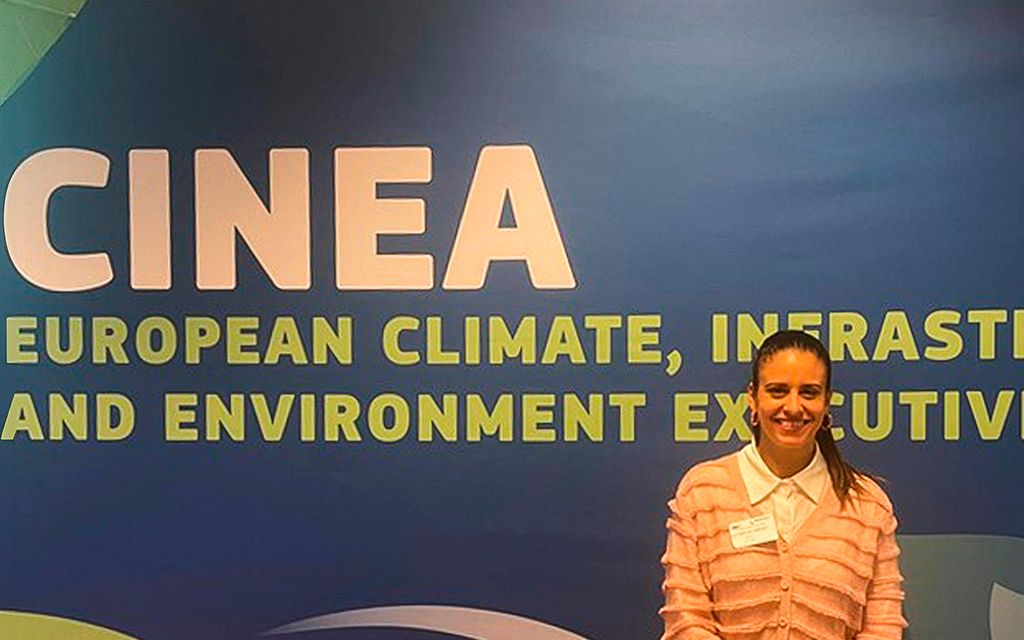On October 15th, 2024, the FLEXBY project had the honour of participating in the Horizon Europe Cluster Event focused on aviation and maritime fuels hosted by the European Climate, Infrastructure, and Environment Executive Agency (CINEA).

The event brought together representatives from various EU-funded projects and key stakeholders to discuss the latest regulatory developments and collaborative opportunities. Nuria Ferrera Lorenzo, the FLEXBY project coordinator from IDENER R&D, represented the project and engaged in vital discussions with experts from related sectors.
The event offered a platform for representatives from EU institutions to share updates on critical regulations affecting the aviation, maritime, and biomethane sectors. The focus was on new policies under the European Green Deal and the Fit for 55 Package, which aim to reduce greenhouse gas emissions while promoting sustainable fuels. Notable initiatives discussed included the ReFuelEU Aviation initiative and the FuelEU Maritime Regulation, both of which are designed to ensure that the aviation and shipping industries adopt cleaner fuels and progressively reduce their carbon emissions.
A central theme of the event was collaboration, as participants explored synergies and potential partnerships amongst projects addressing similar challenges. The discussions touched on several key areas of interest, such as:
- Joint Activities for Life Cycle Assessments and Techno-Economic Analyses: These assessments are crucial for harmonising sustainability metrics across projects and ensuring uniformity in environmental impact evaluation.
- Feedstock Database Development: The creation of a comprehensive database for raw materials used in biofuel production was proposed. This would improve transparency, access to resources, and enhance research in biofuel technology.
- Social Acceptance of Renewable Energy: As renewable energy solutions are scaled up, fostering public understanding and support for biofuels was identified as a priority to ensure the successful implementation of new technologies.
- Challenges in Maritime Fuel Certification: Certifying sustainable maritime fuels remains complex, and collaboration among projects could ease these challenges and promote industry-wide standards.
- Webinars and Best Practices Sharing: Projects expressed interest in organising webinars and forums to share knowledge on feedstock management, certification processes, and overcoming technical hurdles.
- 3D Printed Structure Catalysts: The use of advanced technologies like 3D printed catalysts in biofuel production was highlighted as an area for collaboration to boost the efficiency of sustainable fuel production.
- Project Results Database: The concept of a shared database to consolidate project data, including efficiencies and performance indicators, was discussed. Such a resource could support collaboration and benchmarking, enhancing the collective impact of EU-funded initiatives.

Through participation in this event, the FLEXBY project took a significant step toward establishing strategic partnerships with other Horizon Europe projects. These collaborations will not only strengthen FLEXBY’s efforts but also contribute to the broader goals of sustainability and innovation in the aviation and maritime sectors. The event marks the beginning of a promising journey toward developing and implementing cleaner, more sustainable fuels—a key focus of the FLEXBY project.
The insights gained and the connections forged during this cluster event will undoubtedly propel FLEXBY’s mission forward, fostering impactful collaborations that can accelerate the transition to greener energy solutions for aviation and maritime industries.